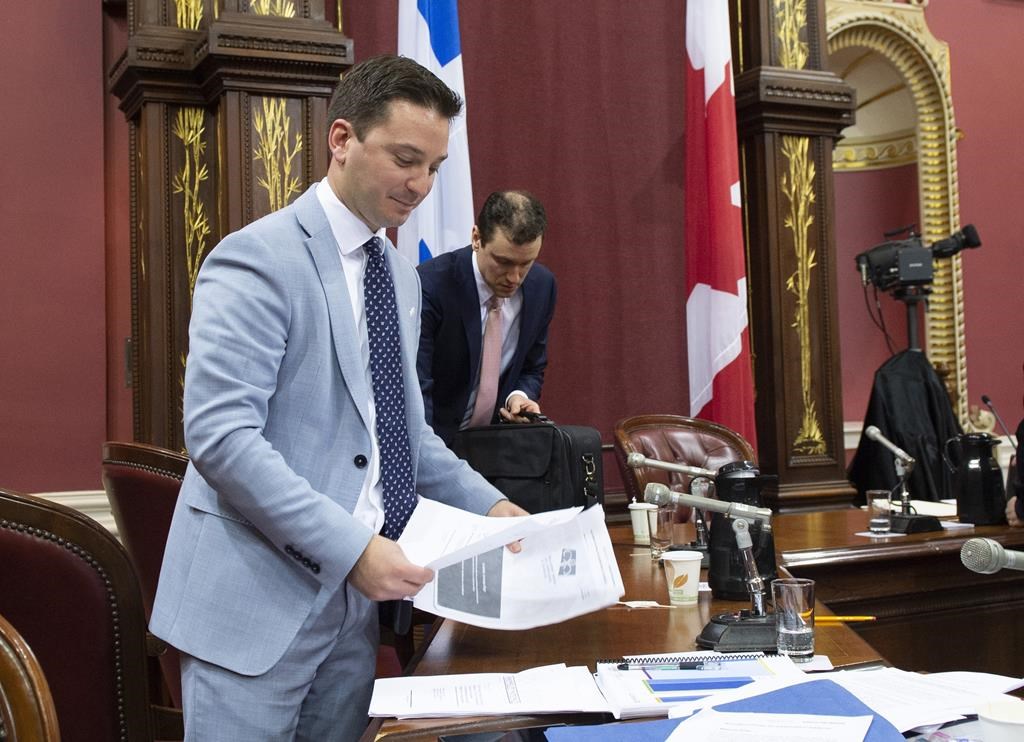The Legault government says prohibiting state employees in positions of authority from wearing religious symbols in the workplace will not affect women more than men.

Quebec Immigration Minister Simon Jolin-Barrette refused on Wednesday to conduct a gender-based study on the bill, which was requested by the City of Montreal earlier this week.
Bill 21 applies equally to women, men, Christians, Muslims, Jews and Sikhs, according to Jolin-Barrette.
READ MORE: Muslim women in Quebec facing increased hate amid Bill 21 debate: advocates
Hélène David, Liberal critic for secularism and former minister responsible for the Status of Women, called it voluntary blindness. In Quebec, at least 80 per cent of teachers are women.

Get daily National news
“You do not have to be a mathematician to know that if you are talking about 80 per cent, you’re talking about a lot more women who are affected than men,” she said.
- Real Canadian Superstore fined for ‘misleading’ Product of Canada displays
- Danielle Smith promises Alberta referendum over immigration, Constitution changes
- ‘No reason to continue discussing’: Ontario mayor wants Andrew’s name dropped
- Canadians say U.S. no longer an ally, is bigger threat than Russia: poll
“When the minister says, ‘No, we do not need (analysis) and no, women are not more affected than men.’ Well, I’m sorry to say, I call that voluntary blindness.”
READ MORE: Quebec English School Boards Association speaks at Bill 21 hearings
For David, it is clear that is women who wear the hijab are targeted by the bill because they are the most visible.
Her observation is in line with renowned sociologist Guy Rocher. During the public hearings into the bill on Tuesday, Rocher said that the religious symbols associated with Islam are much more visible than Catholic symbols.
“The visible symbols will be easier to spot and to ask the person to stop wearing it, or not allow them to change school boards,” said David. “And it’s clear that it’s a lot of women.”
WATCH: Bill 21 hearings: Montreal Mayor and English school boards are heard

David says very few teachers wear the Jewish kippah and questioned if the bill would have gone as far if hijabs weren’t involved.
“The question is very serious,” she said.
Montreal Mayor Valérie Plante said Tuesday she was worried about how banning religious symbols would affect the employment rate for immigrant women.
Plante said the unemployment rate is twice as high for women with an immigrant background than for women born in Quebec or who have arrived in the last five years. She asked the government to do a gender analysis to measure the impact of the bill on women.
— With files from Global News’ Kalina Laframboise




.jpg?h=article-hero-560-keepratio&w=article-hero-small-keepratio&crop=1&quality=70&strip=all)


Comments
Want to discuss? Please read our Commenting Policy first.